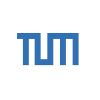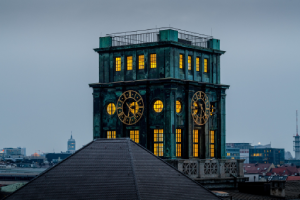Arcisstraße 21, 80333 München, Germany
Career Counselling

The Technical University of Munich has always been one of the highest ranked Universities in Germany. Located in the country’s third largest city, Munich, it is home to over 50,000 students, of whom 41% are from outside Germany, and 36% identify as female.
TUM has five locations in Germany, four of which are within Munich’s state of Bavaria. The main campus is in the city of Munich. Garching, the largest campus, is home to many science and engineering departments. Among the six locations outside Germany, TUM Singapore is the most prominent, when...
| Establishment year | 1868 |
| Total Students | 50,484 |
| International Students | 20,698 |
| QS World University Rankings 2024 | 37 |
| Campus Size | N/A |
| Total Number of Campuses | 5 (in Germany) + 6 (international liaison office locations) |
| University Website | https://www.tum.de/en/ |
| No. of Schools and Divisions | 8 Schools and Departments + 6 Integrative Research Institutes |
| Nobel Prize Winner Alumni | 18 (Professors and Alumni) |
| No. of Education Programs | 181 (Degree Programs) |
| Student to Faculty ratio | 6.5:1 |
Technical University of Munich offers undergraduate and postgraduate courses through 8 Schools and Departments, and 6 Research Institutes.
The Integrative Research Institutes conduct interdisciplinary studies; they include the Munich Data Science Institute, the Institute of Biomedical Engineering, Biotechnology, and Sustainability, and Robotics and Machine Intelligence.
International applicants to Bachelor’s Programs at TUM must have a valid high school secondary degree from a recognized institution. Depending on the language of instruction in the chosen course, every student must be able to prove proficiency in either English or German. The minimum TOEFL or IELTS scores for different programs can be found on their individual webpages.
Applicants from certain countries (including India and Austria) need to provide additional information while applying; these requirements can be found on the relevant University webpage.
The entry requirements for Master’s Programs at TUM are similar to those for undergraduate degrees; however, instead of only a high school diploma, applicants must also submit an undergraduate degree certificate in a related discipline. Many PG programs at the University mandate a minimum level of performance in prerequisite subjects. In some Departments (e.g. within the School of Management), a detailed professional resume and/or work experience are mandatory. A prior record of journal publication is helpful to secure admission to competitive programs, though it is not necessary.
Applicants to PhD programs at TUM must hold a recognized Master’s degree. They must contact a potential faculty guide at the University in advance, and submit a research plan with the supervisor’s approval as a precursor to admission.
The first step in the application process to TUM is to check if the candidate meets the education and performance criteria for his / her chosen program. For example, the high school qualifications needed can be found on the relevant University page.
All international applicants (to both undergraduate and postgraduate programs) must apply through the University portal, TUMonline. A separate application must be filled out for every program in which the student is interested. The following steps are part of the application process:
The review process normally takes several weeks, and the applicant’s status is updated directly on the TUMonline account. Depending on the strength of the application, some candidates may be invited to attend a 20 minute interview, while others are given an unconditional offer of admission. After accepting the offer, candidates must present original copies of their documents after reaching the University.
TUM is funded by the German Government; as such, it does not charge tuition fees to domestic or international students. All students are liable to pay the semester fee, which covers student union costs and administrative expenses. This varies from campus to campus; the highest amount is 102 Euros per semester (on the Heilbronn campus) and the lowest is 72 Euros (on the Straubing location). Students enrolled in continuing and vocational education programs may have to pay professional fees.
Living costs for students in Munich are typically higher than in most other German cities. The University estimates that the monthly budget should be 1,000 Euros. Approximately 60% of this amount is spent on rent, though the expenditure can be substantially reduced if the student manages to get a place in a student dormitory. Food costs range from 200 to 300 Euros per month. Transportation costs for students at TUM are heavily subsidized by the Deutschland Ticket, which costs 49 Euros, and allows holders to travel throughout Germany using all forms of public transport, including bus, train, and metro.

The main campus of TUM was historically in the center of Munich; it has now extended to the city hospital, with additional facilities in the Olympic Park. Other locations within Germany include Garching, Weihenstephan (home to the life sciences department), Straubing, and Heilbronn (which houses many innovation cells). TUM has six locations outside Germany, most of which are local liaison offices: Singapore, Beijing, Brussels, Mumbai, San Francisco, and Sao Paulo.
All campuses of TUM have student events every month. These are designed to bring the whole University community together. From welcome parties at the beginning of every semester to a series of summer classical music concerts, to placement fairs and entrepreneurship pitch events, TUM provides facilities and funding for social events.

Sports facilities allow students at TUM to play football, volleyball, yoga, and 40+ other exercise and athletic activities. The Olympic Park in Munich is home to a state of the art sports campus for University students. Other campuses have their own stadiums, gym buildings, and indoor sports halls. The Garching campus hosts the annual TUM run, with over 1,000 students and staff members taking part in a marathon style event.
The TUM Center for Culture and the Arts is the hub of creative activities at the University. It organizes regular musical and theater evenings featuring members of the student community; it also hosts clubs that enable students to enhance their skills in various artistic fields.
The high cost of living in Munich makes it necessary for many international students to apply for scholarships. There are two main kinds of funding assistance offered by TUM; they are respectively based on academic excellence and financial need.
The most prestigious scholarship that is open to all students at TUM is the Deutschland Stipendium. This awards students 300 Euros per month during the duration of the academic year, which amounts to approximately 30% of the living cost. It is awarded based on academic merit and future potential, with consideration given to social work and students with disadvantages. There are also one time scholarships available for students affected by emergency situations, including the war in Ukraine and the earthquakes in Turkey and Syria.
The Scholarship for International Students is awarded to all overseas members of TUM based on both academic merit (with performance criteria lower than those for the Deutschland Stipendium) and financial need. This is paid once per semester, and the amount ranges from 500 to 1,500 Euros based on the financial condition of the applicant. It is open to both UG and PG international students.
There are many scholarships that restrict entry to students from a particular Department or level of education. For example, the Linde Master Scholarship awards exceptional data science students an amount of 1,000 Euros per month, and the Oskar Karl Forster scholarship takes care of the printing cost of PhD dissertations for doctoral students.
